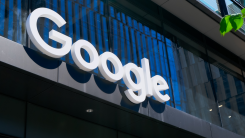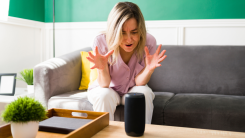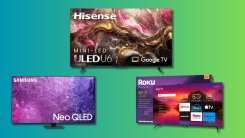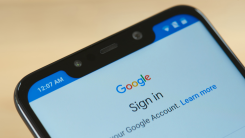How to Stop Alexa’s Annoying ‘By the Way’ Suggestions
Virtual assistants can be quite handy. In fact, Alexa has proven to be an integral part of my smart home system. The fact that I can walk into my home

If you were looking forward to an internet free of cookies, I'm sorry to be the bearer of bad news: Google is officially cancelling its plans to kill cookies.
The company announced the decision in a blog post Monday, citing feedback from regulators, publishers, developers, and individuals in the advertising industry. Google says that, while the company still believes it can strike a balance between the online ad marketplace and user privacy, it understands the existing challenges in doing so with this many moving parts. The company says, "this transition requires significant work by many participants and will have an impact on publishers, advertisers, and everyone involved in online advertising."
As such, Google announced it is changing tactics on its privacy plans for online advertising: While the company will be abandoning its push to retire cookies, it will be introducing a new option in Chrome that, "lets people make an informed choice that applies across their web browsing." Google fell short of explaining exactly how this "informed choice" works, but users will have the option to change their choice at any time. The company also confirmed it is working with regulators on this feature now, and will keep the industry informed as they roll out the option to users.

However this feature works, putting the onus on users, rather than disabling tracking by default (which is how it works on Safari and Firefox) is a shame—especially considering how popular Google's browser is. That said, it may be similar to how Apple's "App Tracking Transparency" works: You may open Chrome, and be asked whether you'd like to block cookies from tracking your internet activity. You can then choose whether to block that tracking, or allow it. Most people, of course, will likely choose to block this tracking, as is what happened on iOS.
All that said, retiring cookies for good would be the optimal path for preserving user privacy on the web. While some cookies are essential for websites to run properly (they're what's responsible for keeping you logged in, remembering what's in your shopping cart, etc.), most cookies are used by advertisers and other companies to track your activity across websites. You can think of them like an ID badge, containing a ton of personal information about you, your device, and your past activity.
Google wanted to replace cookies with a new policy: the Privacy Sandbox. The idea is, instead of tracking individual users' activity, Google would compile your browsing data with others like it, and anonymize the bunch. Then it would share this data pool with advertisers. These companies would still get relevant data, without being able to tie it directly to you and your activity. It isn't great, since we'd still hand Google a ton of data, but it would be better than modern cookies. You can learn more about how both cookies and the Privacy Sandbox work in my explainer here.
Even though Google isn't killing cookies for good, Chrome still lets you block them if you want to. To start, go to Privacy and security in Chrome's Settings. Under "Default behavior," choose Block third-party cookies. Just be warned without cookies enabled, some site features may not work. If you notice your websites functioning improperly, try changing this setting. You can always use Block third-party cookies in Incognito mode if you'd prefer to keep your private sessions cookie-free.

Virtual assistants can be quite handy. In fact, Alexa has proven to be an integral part of my smart home system. The fact that I can walk into my home

The more accessories I add to my tablets, the more I feel like I’m missing the point. Should I really buy a brand new M4 iPad complete with a $350 Mag

The yellow dot (or maybe orange, depending on how you see it) is one of the best privacy and security features on your Mac. It's a simple indicator th

In terms of price and quality, QLED TVs sit somewhere between LCD/LED on the low end and OLED TVs at the top. If you're not sure if you should be shop

Tech headlines are abuzz this morning about a new AI scam targeting Google users. Forbes published a piece detailing two experiences with scammers, bo

Obsidian has long been one of the best alternatives to Evernote. It's powerful, works great as a journaling app, and offers lots of great plugins. The
We are a dynamic information platform dedicated to delivering timely, relevant, and reliable content across a broad spectrum of topics. From the latest in technology and business to lifestyle, health, and global affairs, we aim to keep our readers informed and inspired.
Our editorial team is committed to maintaining high standards of accuracy and clarity, ensuring that every article provides value and context in an ever-changing world. We believe in the importance of accessible knowledge and strive to make complex topics understandable for everyone.
Whether you're here to stay updated on current events, explore thought-provoking features, or simply learn something new, our goal is to offer a trustworthy source of information that meets the needs of a diverse and curious audience.